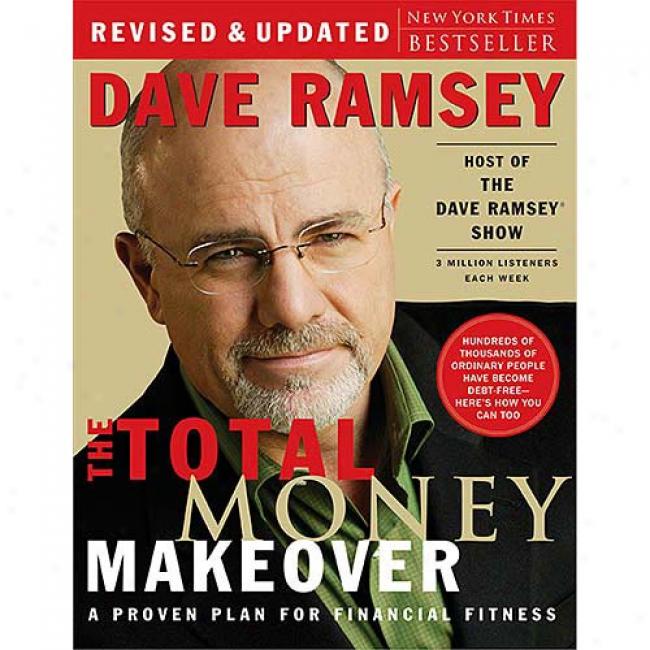What to Expect When Borrowing from Lending Club
If you’re looking for a loan–especially if you want to consolidate debt, Lending Club can be an excellent option.
Lending Club’s unique model allows borrowers to access loans at better rates than they could get through traditional banks because they created the platform to evaluate borrowers by how they might pay back personal loans.
Table of Contents
What is Lending Club?
Lending Club, formerly the largest peer-to-peer lending network, is responsible for over $60 Billion in loans as of September 2020. They moved to be a more traditional lender at the end of 2020 and their acquisition of Radius Bancorp.
More than 67% of Lending Club borrowers report using their loans to refinance existing debt or pay off their credit cards. The average interest rate for all loan terms hovers around 13 percent.
Some are lower and some higher depending on credit history, income, and so on. Some of the top states with Lending Club borrowers include California, Texas, Florida, and New York.
What to Expect From a Lending Club Loan
The Lending Club loan application process is relatively simple. You can apply online in minutes by filling out an application indicating how much debt you want to consolidate.
From there, you will:
- Review your options for monthly payments and interest rates.
- Pick the consolidation option that works best for you.
- Have the loan deposited into your bank account.
How Much Can You Borrow From Lending Club?
You can get loans ranging from $1,000 to $40,000 and get your money in as little as seven days. In some cases, this may take a little longer, depending on what information you need to provide. You can complete the entire process online or by phone.
Once your loan is approved and backed by investors, the money is deposited into your bank account. This step can take anywhere from one to several days, depending on your bank’s policies.
Lending Club Rates and Fees
Lending Club interest rates vary between 6.46% and 27.27%, depending on the loan grade. Loans are graded from A to E, with A being the best grade with the lowest rate. There are no application, brokerage, or prepayment fees.
There is an origination fee you pay for each personal loan. The fee ranges between 1 and 6% of the loan amount. How much you pay depends on your credit rating and what information you provide in your application.
Keep in mind the APR includes the origination fee. The fee is also deducted from the loan when it’s issued, so the funds received when you get the loan are less than the total amount of the approved loan. Make sure to factor this when requesting the loan amount.
If you’re late on your loan payments, you may be charged a collection fee of up to 40% on all amounts collected on a delinquent loan in cases involving litigation. The charge is up to 30% for cases not involving litigation on all payments collected on a delinquent loan.
You can go on the website and check your rate before applying for a loan. According to Lending Club, checking your rate won’t affect your credit score. Applying for a Lending Club loan generates a soft inquiry, which is only visible to you. If your score needs to improve, you can check out Experian Boost to see how it can help.
Four Steps to Borrowing from Lending Club
For well-qualified borrowers, the process of applying for and receiving a loan is reasonably quick and painless. Here are the four steps you can take to get a loan through Lending Club.
Check Your Rate
The Lending Club website asks you to specify the amount of money you are looking to borrow, the purpose of the loan, and your (self-reported) credit score.
Once you click “Check My Rate,” you are then asked to provide some more information, including your name, birthdate, mailing address, and annual income. (As the website points out on this page, checking the rates available to you will not affect your credit score.)
Once you click the “Get Your Rate” button after providing this information, you are either approved or denied for your loan. If you are denied at this point, it is because your credit score is below the minimum score of 620 or because the amount you want to borrow represents too much debt compared to your income.
If approved, you will see your interest rate and monthly payment for the specific amount you have requested and other loan amounts for which you may have qualified. For instance, if you ask for a $2,500 loan, you may also receive approval for loans that are higher or lower than that amount.
You can compare the loan payment amounts and terms, which will range from 36 to 60 months, to see what will best fit your needs. Once you have selected the loan you want, you will click on the “Get Loan” button to move on to the next step.
Provide Personal Information
To verify your identity, Lending Club needs to know your:
- Social Security number
- Employment
- Housing status
The website secures this page with 128-bit encryption, so it’s safe to provide such personal information.
Once your personal information is verified, you are presented with the loan terms, which you must agree to by e-signing your name to the loan application.
Thus far, all you have done is qualify for the chance to receive a loan.
Verify Your Identity and Banking Information
The final step to receiving your Lending Club loan will require the most legwork. Lending Club asks borrowers who have reached this step to submit paperwork electronically to prove income.
You may be asked to submit anything from tax returns to pay stubs to bank statements. Each borrower is different, so you may be asked to provide any or all of these items. Also, Lending Club will need to verify your bank account, which it will do by making a small trial deposit of less than a dollar into the account.
Once the deposit has been made, you will log back into Lending Club to verify the trial amount on their site. This bank account will be where Lending Club deposits your loan once the funds become available.
Finally, Lending Club may also run a hard credit inquiry on you. While simply checking your rate to get the ball rolling with Lending Club does not affect your credit score, this hard inquiry will lower your score for a few months. If you do take a loan with Lending Club, it’s a good idea to wait at least six months before applying for another loan to let your score recover.
Receive Funding
Most LendingClub members are approved within 24 hours, and you should receive their loans within two days of approval.
LendingClub provides a to-do list so that you can get all the information into their system and be approved as quickly as possible.
You can have the money deposited directly into your bank account or, if you are taking out the loan to consolidate other debt, you can have LendingClub pay your multiple creditors directly.
Lending Club Rates and Fees
While Lending Club advertises rates as low as 6.46%, it is improbable that you will see a rate that low. It is only available to individuals with near-perfect credit.
Even borrowers with an A-grade loan may pay as much as 8.81% APR for a 36-month loan. Borrowers whose loans are graded D or E may want to think twice before signing up since the interest rates can go up to 27.27%.
In addition to your APR, Lending Club charges an origination fee of 1% to 6%, depending upon your credit. The origination fee is how Lending Club makes its money.
This fee is something you need to take into account when you request your loan. For instance, if you need to have exactly $5,000, you should apply for $5,260 to compensate for the 5.2% average origination fee.
Paying Back the Loan
One month after the loan is deposited in your bank account, Lending Club will automatically debit your monthly payment from the same account. If you do nothing, your monthly payment will continue until the loan is paid off.
There are no prepayment fees if you want to make extra payments or pay the loan off early. You need to call Lending Club at 1-888-596-3157 to arrange additional payments or an early payback.
What If I Can’t Make a Payment?
While all borrowers have a 15-day grace period to make payments with no penalty, interest will accrue on your loan daily. If you accumulate extra interest because you delayed your payment, you may end up with an additional payment at the end of your loan term.
Payments that are not received within the 15-day grace period window are subject to a late fee. Depending on how late your payment is, your loan may be sent to a collection agency to recover the loan proceeds owed to investors.
Keep in mind that your loan repayment record will be shared with credit bureaus. As such, this can either positively or negatively affect your credit score. All late or missed payments and other account defaults will be reported and may affect your credit.
Alternatives to Borrowing from Lending Club
If Lending Club denies you a loan, there are some other options you may want to consider.
But before you move on to other lenders, first review your credit report and make sure there are no negative marks that would affect your ability to get a loan. You can request your credit report information for free through annualcreditreport.com. Or you can review your credit score and report through Credit Karma.
If everything checks out ok, consider these alternatives to borrowing from Lending Club. Or check out Fiona, which will allow you to compare interest rates from their trusted lending partners in under a minute.
Upstart
Founded by ex-Googlers, Upstart prides itself on offering fair and fast personal loans. Loan rates range from 7.74% to 35.99%. According to the site, borrowers save an estimated 23% compared to their credit card rates.
The company originated $2.9 billion in loans in 2017. You can borrow from $1,000 to $50,000. Get an estimate on your rate by filling out a quick questionnaire. This won’t affect your credit score.
To apply for a loan, you must be a U.S. citizen or permanent resident currently living in the U.S. There’s an exception for active-duty personnel. Residents in all states except Iowa and West Virginia can apply for a loan.
Prosper
Another alternative to borrowing from Lending Club is Prosper. One of the first peer-to-peer lending platforms, Prosper has grown to $14 billion borrowed since 2005.
Loans have fixed three or five-year terms and a single monthly payment with no prepayment penalties. Fixed-rate loans range between $2,000 and $40,000.
The application process is relatively quick, and you can choose the offer with the terms that work best for you. Once you’re approved, the money goes directly to your account via direct deposit.
The Bottom Line
Depending on your creditworthiness and financial needs, Lending Club can be an excellent option for an unsecured personal loan. This is particularly true if you need to refinance a loan with unfavorable rates or consolidate credit card debt.
Take a look at the below example of using Lending Club to refinance a credit card.
It’s essential to recognize that Lending Club is not for everyone. Even if you can qualify for a loan, it’s a good idea to crunch the numbers to determine if their rates and repayment terms are your best option.
Click here if you’d like to learn more about Lending Club and if it meets your needs.






Lending Club truly is great – especially as an investor in this rate environment. Since I first heard of it I thought it was a great idea that people who have built up too much credit card debt have a more reasonable alternative to eventually being able to pay off the balance at a more realistic interest rate versus the 20%+ the large banks charge.
I think if you’re considering taking out a “personal loan” at all, you should probably reconsider. The idea that taking out a personal loan is ever an acceptable thing to do just baffles me. If you can’t afford it without taking out a loan, don’t buy it. I would even apply that to things like auto loans as well, but that’s just me.
Thanks for info,
I would like to be borrower,but how I can protect my investment. As I understand this is deal between me and lender. If I want in short period to return money from bad lander who always late. I don’t have instrument like mortgage or similar. I have to go on cort.